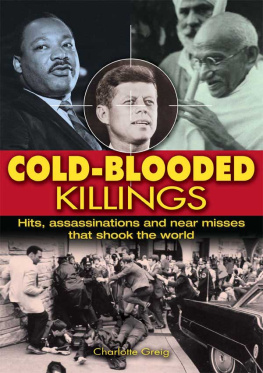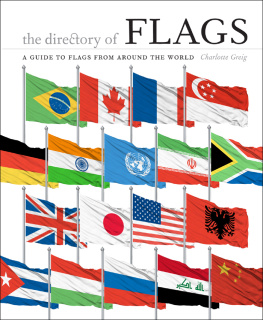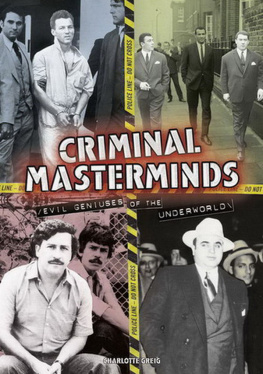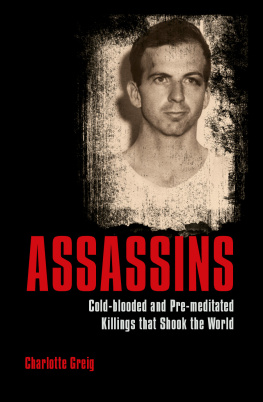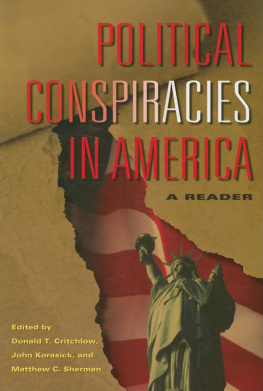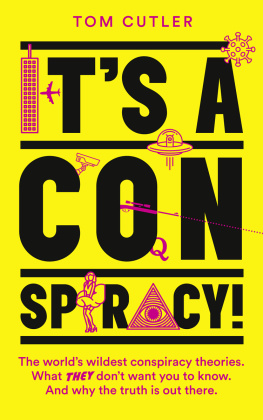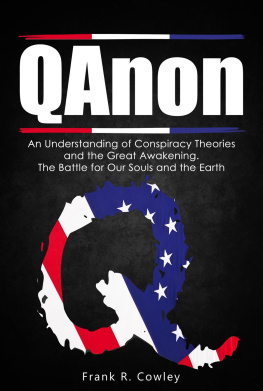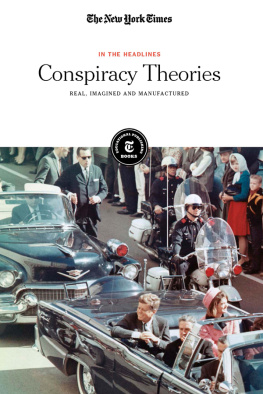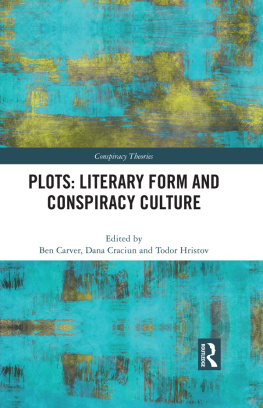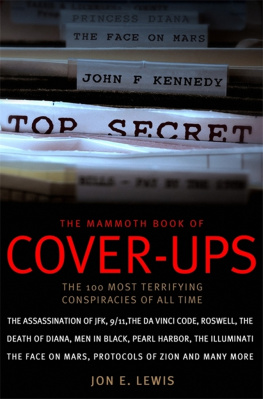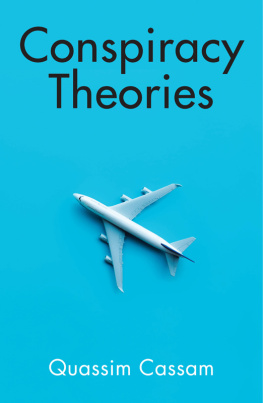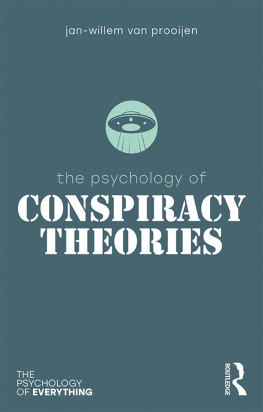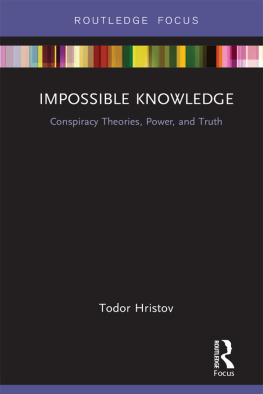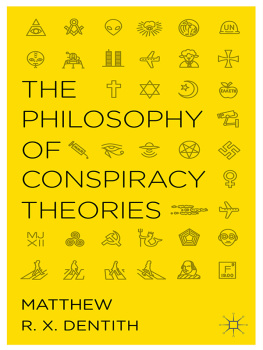CONSPIRACY
History's Greatest Plots, Collusions and Cover-Ups
CHARLOTTE GREIG


This edition published in 2012 by Arcturus Publishing Limited
26/27 Bickels Yard, 151153 Bermondsey Street
London SE1 3HA
Copyright 2006 Arcturus Publishing Limited
All rights reserved. No part of this publication may be reproduced, stored in a retrieval system, or transmitted, in any form or by any means, electronic, mechanical, photocopying, recording or otherwise, without written permission in accordance with the provisions of the Copyright Act 1956 (as amended). Any person or persons who do any unauthorised act in relation to this publication may be liable to criminal prosecution and civil claims for damages.
ISBN: 978-1-84858-141-8
Picture Credits
Cover images: Corbis
Corbis, Getty Images, Mary Evans, Picture Desk, Rex Features, Topham Picturepoint. For more information contact
CONTENTS
INTRODUCTION
Post 9/11 we are in a golden age of the conspiracy theory. The success of Michael Moore's Fahrenheit 911 has made this kind of alternative history positively respectable: nowadays, it's not just crazed loners who spend too much time on the internet discussing why George Bush carried on reading a children's story after being told the first plane had hit the World Trade Centre, or scanning the business pages to find out whether the 'War on Terror' is really the war for more oil.
Often enough, yesterday's conspiracy theory is today's accepted history. If you'd said at the time that Hitler started the Reichstag Fire himself to smear his Communist opposition you'd have be called paranoid. Now it's an accepted fact. And how many people today really believe that JFK was assassinated by Lee Harvey Oswald acting all alone? And are we wrong to see conspiracies in the links between, say, the US government and Halliburton or Enron? Or nave not to?
Of course, not all conspiracy theories have a basis in fact. Some are outlandish, such as the theory that that the world is hollow and inhabited at the centre; others, such as the notion that the government is hushing up alien visitations here, there and everywhere, seem like the stuff of X files episodes. Yet all of them, even the most bizarre, address facts that cannot easily be explained, or point to our psychological need to find a reason for everything that takes place in our world.
Then there are those conspiracy theories that hover entertainingly on the edge of possibility: for example, the idea that the moon landings were faked up in a film studio. And, of course, there's not a celebrity death without its attendant conspiracy theory. Was Princess Diana murdered? Is Elvis still alive? Was the FBI really behind John Lennon's murder? To some, these theories simply demonstrate our human tendency to deny death and loss, to let our idols go; to others, they reveal the sinister currents of money and power that run below the public life of any celebrated figure in our culture today.
This book gathers together more than forty of the most compelling conspiracies: ranging from the genuinely credible to the frankly implausible, from paedophile conspiracies to crop circles, from Watergate to the Holy Grail. Was Pearl Harbor a set-up? Was Marilyn Monroe murdered? We may not have the answers, but we've got some pretty good theories!
WHAT IS A CONSPIRACY THEORY?
The words conspiracy comes form the Latin conspirare. Literally it means 'to breathe together'. In practice it refers to two or more people making a plan of action. Theoretically that plan could be either good or bad, but over the centuries it has gained a distinctly negative sense. You can see this clearly from the way in which the word is used in the legal sphere: 'conspiracy' in a legal sense always refers to wrongdoing.
Conspiracies are not by definition secret but as the word has attached itself to criminal behaviour that's almost inevitably a part of the package. So, over the years, secrecy has become a part of our conventional sense of what a conspiracy is. And it's a crucial part when it comes to the development of conspiracy theories. Essentially, conspiracy theories are alternative explanations of history or of the world about us. Conspiracy theories suggest that dramatic events happen not by accident or for apparent reasons, but because of plans made in secrecy.
There's no doubt that conspiracy theories have been with us for thousands of years. After all conspiracies certainly have. Whether it's the ancient Greeks conspiring to take over Troy or the Caesar's rivals conspiring to assassinate him, history is full of dramatic conspiracies. And there have always been people with a suspicious cast of mind who've come up with conspiracy theories to explain such events.

However, it's only in the past hundred years or so that conspiracy theories have really come to the fore. Perhaps that has something to do with the decline of religion. In the past people tended to see inexplicable events as the work of the Almighty. In our more secular times, however, people tend to look for the nefarious hand of man.
The late nineteenth century saw the birth of some enduring conspiracy theories. As the world was changing fast through industrialisation, and the old certainties of life were being shattered, many people started to suspect that there was some powerful organisation controlling all this, some group who were effectively setting themselves up as rivals to God. The prime candidates for this role, in a Europe in which anti-Semitism had long been rife, were the Jewish communities. The idea of an international Jewish conspiracy began to gain credence, especially in Russia in the turbulent years leading up to the first world war. Other candidates for the role of secret rulers of the world included the Freemasons, the Communists, and the semi-mythical group known as the Illuminati.
Such visions of a world controlled by a small and sinister cabal are still a popular element in conspiracy theoriestoday. In fact they lie behind almost every conspiracy theory there is. So perhaps the answer to the question 'what is a conspiracy theory?' should be 'it's a theory which suggests that the great world events are not what they seem; rather, they are the manifestations of a world controlled by a secret elite.'
CONSPIRACY THEORIES TODAY
There has been an explosion of interest in conspiracy theories in recent years. There are many possible reasons for this loss of faith in religion, as mentioned above, loss of faith in politicians, a sensationalist mass media that likes to broadcast sensational theories, the influence of films and novels espousing conspiracies, and so on. One major factor is undoubtedly the growth of the internet. The internet is the perfect medium for spreading conspiracy theories. Where once a rumour would be passed around a chosen few insiders and spread slowly through the metropolitan grapevine for example, the rumour about the identity of the masked man at the London sex parties at the heart of the Profumo affair, or the one about the identity of the Watergate source known as 'Deep Throat' these days, it will be on the internet in minutes and instantly transmitted around the world.
Thus today, when a major event occurs take 9/11 for example conspiracy theories immediately start to circulate on the internet. Evidence that the authorities would prefer to have kept quiet is now available to be discussed and interpreted from America to Australia. The trouble is, of course, that so too are lies, fabrications and delusions. The internet is at once a marvellous tool for avoiding censorship and allowing the voice of truth to emerge, and also a forum in which every lunatic and partisan commentator can have their say. Today, when so many conspiracy theories appear on the internet, it is sometimes a difficult business to determine which ones are worthy of serious consideration and which are simply hearsay.
Next page

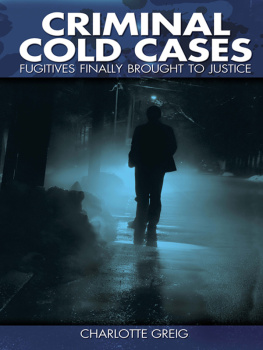
![Charlotte Greig - Evil Serial Killers. In the Minds of Monsters [Fully Illustrated]](/uploads/posts/book/70143/thumbs/charlotte-greig-evil-serial-killers-in-the-minds.jpg)
